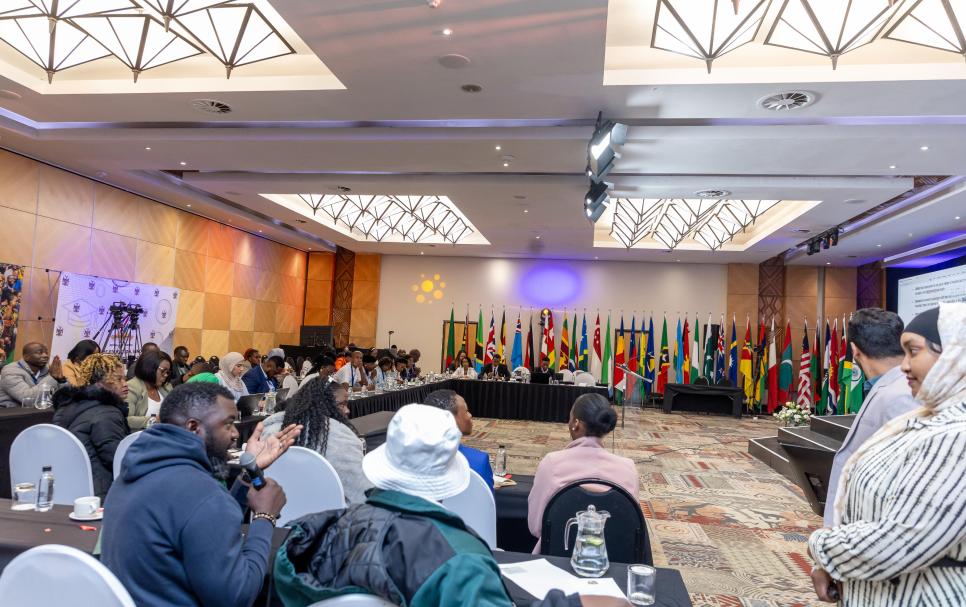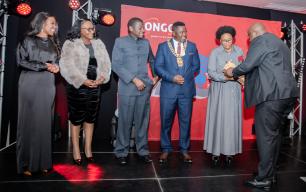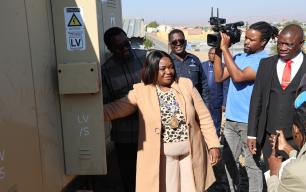Youth leaders call for action at Commonwealth

By Hilja Shikongo
A call for bold leadership, radical inclusion, and institutional reform echoed throughout the Commonwealth Youth Council’s (CYC) 1st Consultative Dialogue held from 4–8 August 2025 in Windhoek, Namibia.
The historic five-day gathering brought together youth leaders, ministers, national youth councils, policymakers, and civil society stakeholders from across the 56 Commonwealth countries. Delegates engaged in deep reflection, high-level conversations, and structured dialogue aimed at transforming youth governance and development systems.
Officially opened by Sanet Steenkamp, Namibia’s Minister of Education, Innovation, Youth, Sports, Arts and Culture, the dialogue was described as “a moment of immense pride” and “a moment of opportunity.”
“Namibia welcomes you with open arms and a firm handshake as a friend, as a partner, and as a proud member of the Commonwealth family,” Steenkamp said. “This dialogue represents the Commonwealth’s commitment to investing in its greatest resource, its young people.”
Steenkamp highlighted Namibia’s youth-centred policies under the National Youth Policy III and National Development Plan Six. She detailed active interventions such as expanding access to vocational education, youth entrepreneurship support, internship programmes, and the National Youth Fund.
“Our flagship programmes are not theoretical models. They are already reaching young people in towns, villages, and informal settlements.” CYC chairperson Joshua Opey reflected on the Council’s activities since his inauguration in Samoa in 2024, he mentioned over 300 youth-led AI workshops across the Commonwealth and the launch of the Commonwealth Leadership Series at the London School of Economics. However, he noted that serious challenges persist. “The lack of institutional support for the CYC's work significantly hinders its operations,” Opey said. “We have a space [in London], but we do not even have the right to access it.” He called for every member state to provide budget lines for youth delegates and commit to strengthening or establishing National Youth Councils.
“This is not a summit. It is a summon,” he declared. “A summon to question the very structures that have governed our voices. We are not here to make edits. We are here to tear down what no longer serves us and to build a new blueprint for global youth leadership, from scratch if we must.”
Rosy Schaneck, the Africa representative of the Commonwealth Youth Council and a key organiser, delivered a stirring address. “For far too long, youth leadership has been boxed into panel discussions, stripped of power, and offered applause instead of authority,” she said. “History does not happen. It is made by those bold enough to question everything,” Schaneck said.
She urged delegates to speak boldly, dream dangerously, and reclaim agency. “This week, we reclaim our agency. And from this room, we will echo across 1.5 billion voices. Not as representatives. But as revolutionaries,” she said. Throughout the programme, delegates participated in high-level panels and regional break out sessions. Day 1 featured a panel on “Reshaping Youth Governance in the Commonwealth,” while Day 3 focused on the Youth Ecosystem Dialogue, addressing topics like education, digital skills, climate action, and mental health. Workshops covered issues such as financing youth development, leveraging AI for governance, and youth participation in policymaking.
An intergenerational dialogue also took place, allowing youth to speak directly with senior officials from countries like Seychelles, Fiji, and Namibia. This dialogue emphasized collaboration and cross-generational learning.
On Day 4, discussions culminated in the drafting and signing of the Windhoek Declaration, a youth-informed framework outlining action points for governments, institutions, and youth bodies. The declaration was designed not to “gather dust,” as Steenkamp put it, but to drive implementation and measurable change.
The final day features a symbolic community outreach programme, including tree planting, mentorship circles, and book donations. The event concludes with a gala evening where senior officials officially launched the Windhoek Declaration.
Across five days, the message from young people was clear: the time for promises has passed. The time for delivery is now.
“Windhoek can mark the moment when words turned into deeds,” Opey said. “Let us leave these halls with signed resolutions and dedicated resources to drive youth development.”
- 1 view










Comments